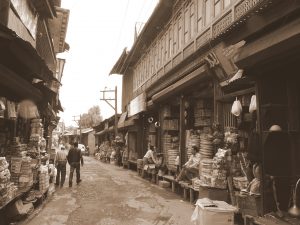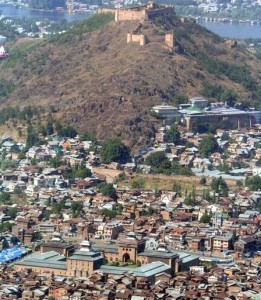Peace Watch » Editor's Take, Kashmir-Talk » Mashal-e-khu’er – the children of lesser god but part of pageantry
Mashal-e-khu’er – the children of lesser god but part of pageantry
Nostalgia
‘Mashal-e-khu’er
 The Luxury of time was the beauty of our childhood. We were not couch potatoes, but free as birds having liberty to perch on high or low branch and sing our songs like a nightingale. We had freedom of Iqbal’s hawk to fly unimpeded high in skies at our sweet will. ‘To have a happy childhood is the luckiest thing that can happen in one’s life. That way our whole generation despite being born and brought up in the thick of the resistance movement were luckier than the contemporary generation. Then, my mother would not have heart in her mouth, if I did not return home before dusk from the playfield or did not make in time to my home after the school- that was true about every one of us- my siblings, schoolmates and friends.
The Luxury of time was the beauty of our childhood. We were not couch potatoes, but free as birds having liberty to perch on high or low branch and sing our songs like a nightingale. We had freedom of Iqbal’s hawk to fly unimpeded high in skies at our sweet will. ‘To have a happy childhood is the luckiest thing that can happen in one’s life. That way our whole generation despite being born and brought up in the thick of the resistance movement were luckier than the contemporary generation. Then, my mother would not have heart in her mouth, if I did not return home before dusk from the playfield or did not make in time to my home after the school- that was true about every one of us- my siblings, schoolmates and friends.
Loitering around during recess and after the school was our best hobby- it was during this pastime, I would often spot some of them sleeping under the shade of hackberry tree on the grounds of the centuries-old Masjid in a neighboring Mohalla. The noisy parakeets feasting on purple berries or boys hitting the tree with stones for tasting the hackberry fruit could not wake them up from their ‘bear sleep.’ Sometimes, I spotted them deep asleep under the shade of Chinars on the chiseled limestone platform of Khanaqah Naqshbandi Sahib. These men mostly not-that-well-clad, even in tatters but some of them robust and rubicund woke up fully energized before the sunset to line up at a shop in our Mohalla for nightlong job. The shop belonging to one Ghulam Ahmed rented out mashals (Fire Lights) for the bridegroom’s pageant and palanquins for the brides. Majority of us knew these men as Mashal-e-khaer.
For naming these fire-light or torch carriers as mashael was comprehensible, the word has perhaps come into our language both from Hebrew and Arabic but why it was suffixed with word Khuer always puzzled me. The word Khuer had assumed many a meaning and shades. The word was commonly used for one suffering from favus ( – a fungal infection caused due to unhygienic condition that covered entire scalp. This skin disorder affected many in the city but it was widespread in the rural areas. In our Mohalla two boys suffered from favus, even after they were cured of this diseases and had grown tufts of curly hair on their heads, their names continued to be suffixed with word Khuer. The word was also used for rowdy and vandals. 
Out of the huge crowds of the torchbearers that would line up at the shop of Ahmed after the dusk during the marriage season I remember having seen only one Mashal-e-khu’er suffering from the favus, he was known as Ama Khuer. For his sharp wit, humor and cracking jokes he was very popular with the children. Mostly torchbearers, with a big contingent of them from Gurais and Tilel were well-made, hardy and fair complexioned. Those days, Dard people moved into the capital city for work in large numbers, and for almost eight months localities around the historic Jamia Masjid used to be their abode.
It was by about seven or eight in the evening the mashal-e-khaer hoisting the Mashals against their shoulders like soldiers to battlefronts moved to the bridegroom’s house in a long queue. On reaching the bridegrooms house, they rested mashals against a wall and waited for the departure of the bridegroom to the bride’s house on a horseback. Making a mashal in itself was an art that involved lot of aesthetics. The mashal with lots of craft paper and crepe flowers at the ends of small twigs fitted to long pole with a kerosene lamp burning at its top looked like an almond or an apricot tree in full bloom. Moving along the bridegroom to bride’s house on the two sides of roads or lanes was as good as walking on a tightrope. The movement of Mashal carriers was guided by a chief called Rangadanga. The mashal carriers were poorly paid, perhaps two rupees for the night and served the leftover food, which they gulped down like ravenously hungry.
Filed under: Editor's Take, Kashmir-Talk








